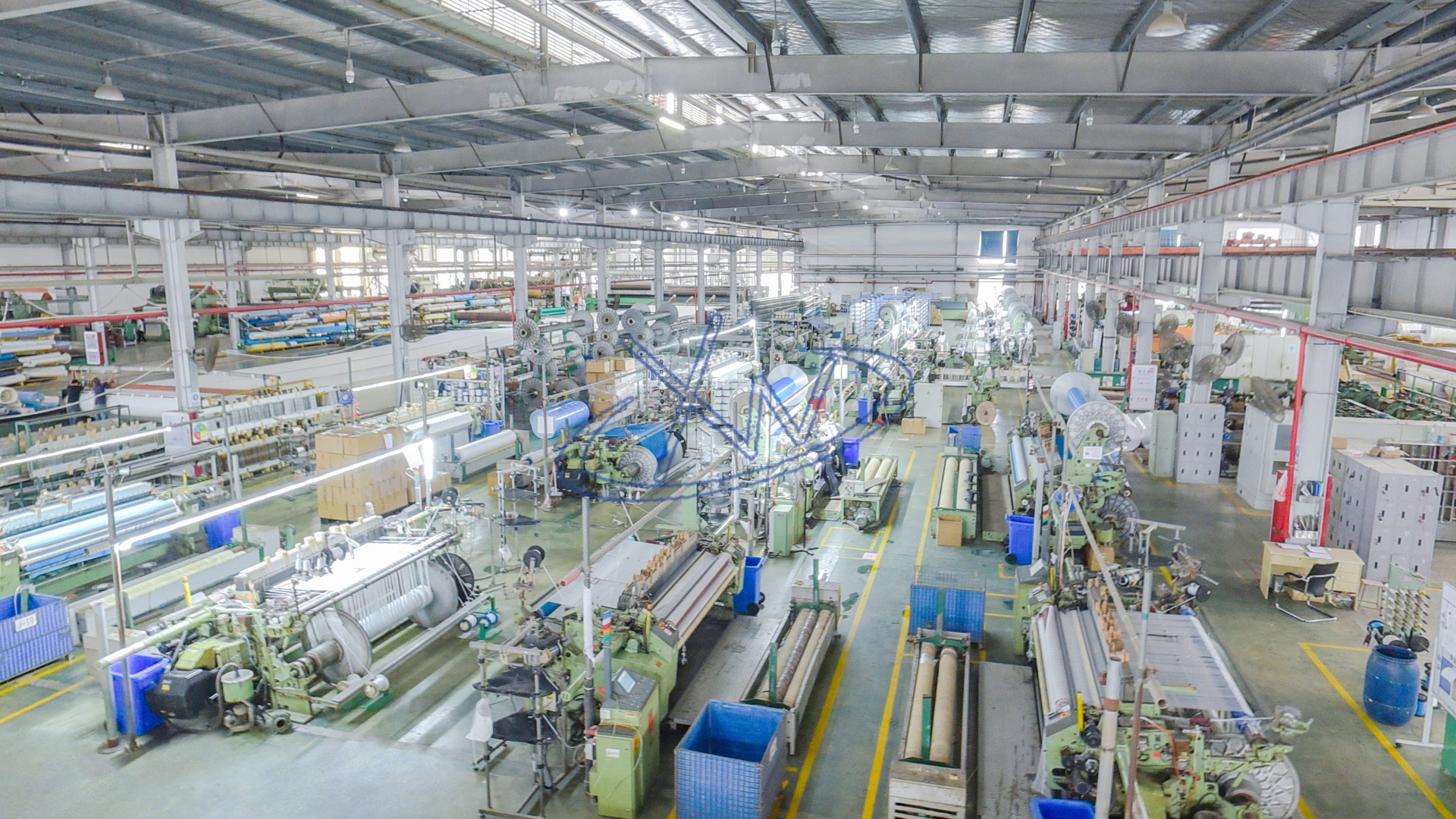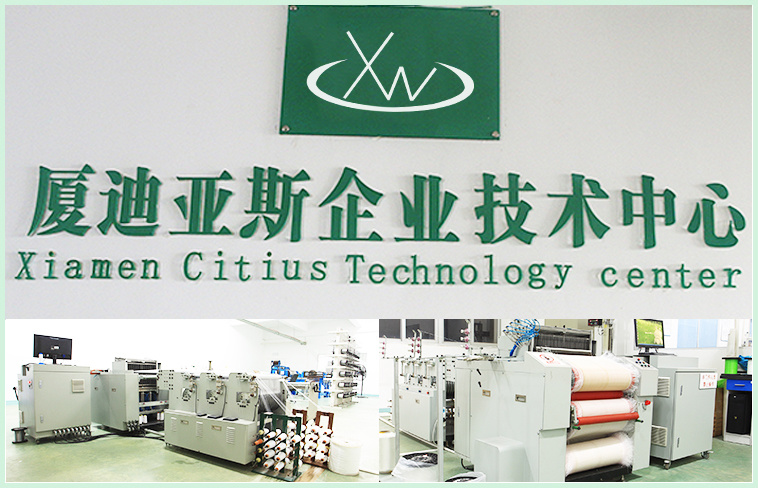Magnesium Tailings Dewatering: Filter Cloth Selection for CITIUS Filter Press
Release time:
2025-11-17
In the magnesium chemical industry, tailings dewatering is often considered a “ Finishing move ” However, it is one of the core processes that significantly influence capacity release, environmental compliance, and production costs. Whether it’s the mining and beneficiation of magnesite or dolomite, or the subsequent smelting stages, the quality of dehydration—whether superior or subpar—invisibly determines the operational efficiency of the entire industrial chain.
In actual production, Plate-and-frame filter press + Professional Dehydration CITIUS Industrial filter cloth It has become the standard combination for treating magnesium ore powder tailings, seemingly “ Equipment + Consumables ” Though simple in nature, this relationship embodies the intricate logic of filtration engineering, pulp rheology, and industrial textile technology. To truly reduce moisture content, prevent cloth fouling, and enhance cycle stability, the key lies in —— CITIUS Industrial filter cloths must match the characteristics of tailings, not “ As long as it works, that's fine. ”。
I. Magnesium Ore Powder Tailings: What’s the Real Reason They’re Difficult to Filter?
Magnesium ore powder tailings are not your average tailings—they have three industry-recognized features. “ Difficulties ”:
1. Primarily composed of fine particles, it easily penetrates and clogs fabrics.
The particle size of the tailings from magnesium ore grinding often concentrates in 3–30 Micrometer At the initial stage of filtration, a large amount of fine particulate matter easily penetrates the filter cloth, causing the filtrate to become cloudy. Subsequently, these particles quickly clog the pores, sharply reducing the filter cloth's ability to allow water to pass through.
This kind of “ Double Trouble ” Making it difficult for ordinary filter cloths to withstand.
2. Highly compressible, making filter cake formation difficult.
Magnesium ore tailings have a loose particle structure and high surface activity, making them prone to [something] during the pressurization process. “ Condensed into a cake ” The tighter the pressure, the more difficult it becomes for the filtrate to escape, resulting in an ever-lengthening filtration cycle.
A common phenomenon in the debugging phase of many factories is:
“ The equipment pressure is sufficient, but the filter press just can't squeeze out all the liquid. ”
The issue isn't with the equipment—it's that the filter cloth can't form an ideal filter cake structure.
3. The chemical properties of the slurry are complex, affecting filtration stability.
Magnesium ore tailings typically contain:
- Clay minerals
- Soluble magnesium ions
- Residues of various pharmaceuticals
These factors can lead to the formation of an adhesive layer on the filter cloth surface, making discharge difficult and causing the filter cloth to become increasingly less effective with continued use. “ Quiet ”。
In summary, the inherent filterability issues of magnesium ore tailings stem from: The particles are fine. → Easily clogged → The crust layer is difficult to form. → Periodic instability → Moisture content is relatively high. 。
To solve the challenging problem, relying solely on the filter press's tonnage or pressure isn't enough—it requires a more comprehensive approach. “ Filter cloth structure ” Get your hands on it.
2. Why has the plate-and-frame filter press become the main equipment for magnesium chemical tailings?
Among the many solid-liquid separation devices—such as thickeners, vacuum filters, belt press filters, and ceramic filters—why are plate-and-frame filter presses ultimately preferred for magnesium ore tailings?
1. More suitable for easily compressible tailings
The filtration pressure of the plate-and-frame filter press can reach 1.6–2.5 MPa , diaphragm pressing can even further enhance dewatering efficiency, effectively addressing magnesium ore tailings. “ Easily compressed, difficult to drain ” The characteristics.
2. The filter cake has a lower moisture content.
Compared to ceramic or vacuum filters, plate-and-frame systems can further reduce costs by approximately 4–8% The moisture content , which is crucial for tailings transportation and storage.
3. The filtrate has high clarity and can be recycled.
The filtrate from magnesium ore tailings is mostly recycled back into the grinding system, where high clarity is required. The filter press ensures that the suspended solids concentration in the filtrate remains consistently below 50 mg/L 。
4. Stable craftsmanship, highly adaptable
Especially when ore variations are frequent and tailings properties are unstable, the fluctuations of the plate-and-frame filter press become more manageable.
However, it must be emphasized: If the filter cloth does not match the aforementioned operating conditions, the filter press still won't perform effectively.
III. Dehydration and Dias CITIUS Industrial filter cloth: Invisible yet the most critical filtration core
It's a common saying in the industry:
The plate-and-frame filter press sets the upper limit, while dehydration CITIUS Industrial filter cloth sets the lower limit.
There aren't any suitable . CITIUS Industrial filter cloths prevent the full performance of filter presses from ever being realized.
Why CITIUS Is industrial filter cloth so crucial?
1. CITIUS The pore size distribution of industrial filter cloth determines the filter cake formation rate.
Magnesium ore tailings contain many fine particles—if CITIUS Industrial filter cloth is too loose:
- Initially wear cloth
- The filtrate is cloudy.
- The filter press has to be cleaned frequently.
- The filter cake cannot be formed quickly.
If CITIUS Industrial filter cloth is too tight:
- Slow filtration speed
- The fabric is severely damaged.
- The cycle is extended exponentially.
Therefore, magnesium tailings must be utilized. Precise Aperture Distribution + Layered weaving structure The CITIUS Industrial filter cloth.
2. Surface treatment affects whether the fabric sticks and whether it’s easy to release from the mold.
Real pain points in the industry:
- The filter cloth starts clogging after just one week.
- The filter cake won’t come off—cake adhesion is severe.
- Daily, the machine keeps stopping for cloth cleaning.
This comes from magnesium tailings. “ Sludging Characteristics ” . Solutions include:
- Mud-clogging prevention treatment
- Surface low-energy treatment to reduce adsorption
- Strengthen drainage structures and enhance permeability.
These technologies determine the filter cloth's lifespan—and also decide whether the production line runs smoothly.
3. Wear resistance determines the service life.
Magnesium tailings contain hard particles that cause significant wear on filter cloths.
The typical filter cloth may have a service life of only:
- 20–35 Sky (high-intensity scenes, even shorter)
Professional filter cloth can achieve:
- 60–90 A stable usage cycle of more than one day
- Unloading material without sticking to the cloth
- Water permeability decreases more slowly.
At a daily processing line 3000 On the tailings line, extending the filter cloth's lifespan by just one more day directly translates to lower operational costs.
IV. Example of Typical Magnesium Ore Tailings Filtration Scenarios (Industry-Wide Scenario-Based Approach)
Here are the typical tailings treatment line parameters for magnesium chemical enterprises:
Production Scenario Parameters
- Daily tailings processing: 2500–4000 Ton
- Tailings solids content: 12–20%
- Particle size: 5–30 µm For the main purpose
- Equipment: 1500×1500 Or 2000×2000 High-pressure Membrane Filter Press
- CITIUS Industrial Filter Cloth: Customized Dewatering Solutions CITIUS Industrial filter cloth
Common pain points
- Filter cycle is unstable: 60 Minutes → 120 Minutes
- Moisture content is relatively high: 26–30% (Hard to decline)
- CITIUS Industrial filter cloth frequently clogs
- The hanging cake is severe, making unloading difficult.
Professionally trained CITIUS The improved performance of industrial filter cloths
- Cycle shortened 20–35%
- Moisture content decreases 3–6%
- CITIUS Industrial filter cloth lifespan extended to 1.5–2 Twice
- The filtrate has higher clarity and can be directly returned to the grinding process.
- Workshop downtime reduced 30% The above
This type of optimization brings value to the mine tailings station—not only in terms of efficiency improvements, but also:
Energy conservation, emission reduction, alleviating pressure on tailing ponds, and improving mineral processing recovery rates.
V. How Magnesium Chemical Enterprises Can Choose the Right Dehydration Agent for Diasa CITIUS Industrial filter cloth?
This is a concern that many factories truly care about. Below are professional suggestions that can be directly used when communicating with customers:
1. Select based on tailings particle size CITIUS Industrial Filter Cloth Structure
- Particle size is ultrafine → Use a filtration structure with a denser surface layer.
- High in clay content → Use anti-fouling fabric treatment
- Using a diaphragm filter press → Higher-intensity fabric structure
2. Pay attention to CITIUS Industrial Filter Cloth Processing
CITIUS Industrial filter cloth is not just “ Cropping + Edge wrapping ” The key lies in:
- Edge-wrapped, high-pressure resistant, and abrasion-proof
- Feeder Port Reinforcement Rib Design
- Precise punching, preventing deflection
- Seam Reinforcement
These processes directly affect the filter press's sealing performance and filtration stability.
3. Choose suppliers with experience in mining and chemical industries.
Magnesium ore tailings pose a challenging filtration scenario, requiring suppliers to have:
- Industry Experience
- Weaving Capability
- Customized Craftsmanship Capabilities
- Understanding the characteristics of tailings
Especially continuous operation 24 hours The mine site requires even more professional support.
VI. Conclusion: CITIUS Industrial filter cloth is not an accessory—it is the key process equipment for treating magnesium chemical tailings.
In the magnesium chemical industry, effective tailings dewatering means:
- Lower transportation and storage costs
- Higher production continuity
- Less environmental pressure
- Higher recycling rates
Whether the plate-and-frame filter press, as the main equipment, can truly deliver its performance depends on something that may seem insignificant at first glance. —— CITIUS Industrial filter cloth 。
As the major trends of green mines, solid waste reduction, and resource utilization continue to advance, high-performance CITIUS Industrial filter cloth will no longer be “ Consumables ” Instead, it is one of the core technological elements driving the upgrading of the magnesium chemical industry.









